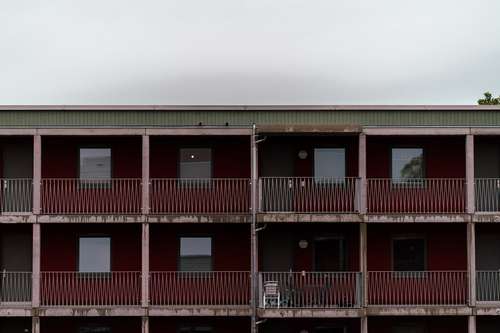In recent developments, West Northamptonshire Council has taken a bold and unexpected step in addressing the growing issue of asylum hotels. The council’s move to issue planning contravention notices against hotels used by the Home Office for housing asylum seekers has sparked an intense debate within the community. Many are now questioning the balance between offering temporary refugee accommodations and ensuring that local resources are not overstretched.
This decision comes on the heels of a High Court ruling that granted a temporary injunction, preventing further use of at least one specific hotel for asylum seekers. The council’s action reflects a clear stance: without tightened measures and a proper review of hotel usage, the existing housing crisis could worsen. Residents and local representatives alike are watching carefully, wondering if this formal step will lead to a broader policy change that addresses both immigration issues and pressure on public services.
Council Issues a Formal Step
West Northamptonshire Council has decided that decisive municipal action is needed. The planning contravention notices that have been issued represent a formal step by the council to reassert local government influence over refugee accommodations. The move is geared toward enforcing rules and guidelines already in place for hotel usage in the area.
This decision by the council is not just about paperwork; it’s an explicit message to the Home Office and other state agencies that local authorities have an essential role in how asylum seekers are housed. In effect, the council decision underscores a strong commitment to control the local environment. It is a call for ensuring that legal measures are met with robust local enforcement, especially when public services and community resources are at stake.
When you think about it, isn’t it similar to setting rules in a family? The council wants to make sure that every member of the community contributes to a stable and safe home environment. The formal step taken will likely spark further discussions on immigration policy and the future use of hotels as temporary housing facilities.
Community and Local Government Response
The announcement of these contravention notices did not fall on deaf ears. Many community members have voiced their opinions, expressing concern over how the continued temporary housing in asylum hotels might impact local resources like healthcare, education, and safety. A group of local residents even organized a community response and public protest, aiming to push for a renegotiation of local immigration policy.
The strength of the community response lies in the diversity of voices—from local business owners worried about the housing crisis to citizens demanding improved public services. Some residents have compared the situation to having too many cooks in the kitchen, where an overload of different demands can lead to service disruptions. This analogy is both striking and true when you consider the full weight of communal expectations and resource allocation.
Local government officials have been pragmatic while articulating their stance. They affirm that their primary concern revolves around public safety and the efficient functioning of municipal action. The decision is not intended to turn away those in need but rather to secure a disciplined and sustainable approach to asylum hotel usage. The balance between supporting asylum seekers and protecting community welfare remains a primary focus.
Legal and Practical Implications
The recent High Court ruling that allowed a temporary injunction has set the stage for this wave of legal measures. The court’s decision indirectly pushed the council into a corner, where they had to reconsider how best to manage these refugee accommodations. The formal step initiated by the council includes exploring additional legal avenues to address what is seen as an overextension of hotel usage beyond its intended purpose.
Those following immigration issues have remarked on the irony of the situation: a temporary solution meant to help asylum seekers is now stirring up a broader legal debate. Legal experts note that while the contravention notices serve as a local government measure, they also interact directly with national immigration policy. This intersection of law and local authority makes for a complicated landscape that many experts believe could set a precedent for future council decisions around similar issues.
From a practical standpoint, many are asking if these actions will lead to any real change on the ground. Is it possible that such a measure could prompt a rethinking of how temporary housing is managed across the country? The answer might not be immediately clear, but what is evident is that the council is no longer content to follow orders from above without asserting its local priorities. This blend of legal and local perspectives underscores an important moment where policy, law, and community welfare converge.
Broader Implications for Refugee Accommodations
The impact of the council’s formal action extends well beyond the immediate issue of planning contravention notices. For many, this move symbolizes a desire for a more controlled and accountable system when it comes to asylum hotels. Not only does it draw attention to a housing crisis, but it also elevates the discussion around sustainable refugee accommodations.
Residents across West Northamptonshire have reported feeling the strain of managing increased demands on local public services. It’s a classic case of a local authority stepping in to ensure that the community is not overwhelmed by political decisions made at a national level. When you have so many moving parts, even a small adjustment in policy can be like pulling a thread that unravels a sweater – one misstep can lead to a cascade of issues.
The broader implications of this decision might even influence future actions by other local councils. The formal step taken here serves as a case study in how local government can enforce rules to achieve policy change. Some advocates within the council claim that this could spark a national conversation about hotel usage as temporary housing and help shape better legal measures that are fair to everyone involved.
It is evident that local government and public services are at a crossroads. The legal barriers and community responses will always be intertwined with the fundamental question: how can the needs of asylum seekers be met without compromising the welfare of the community? This question is as complex as it is crucial, and the current council decision within West Northamptonshire may be one of the first steps toward a broader reassessment of our immigration policy.
In summary, the formal step against asylum hotels by West Northamptonshire Council is a multifaceted action that aims to balance community safety with humanitarian considerations. By issuing planning contravention notices, the council is not only addressing local housing and public service challenges but also inviting a larger discussion on sustainable refugee accommodations. Only time will tell if this local government action will spur significant policy change, but for now, it remains a bold reminder of municipal power in steering legal measures and community response in times of mounting immigration issues.




